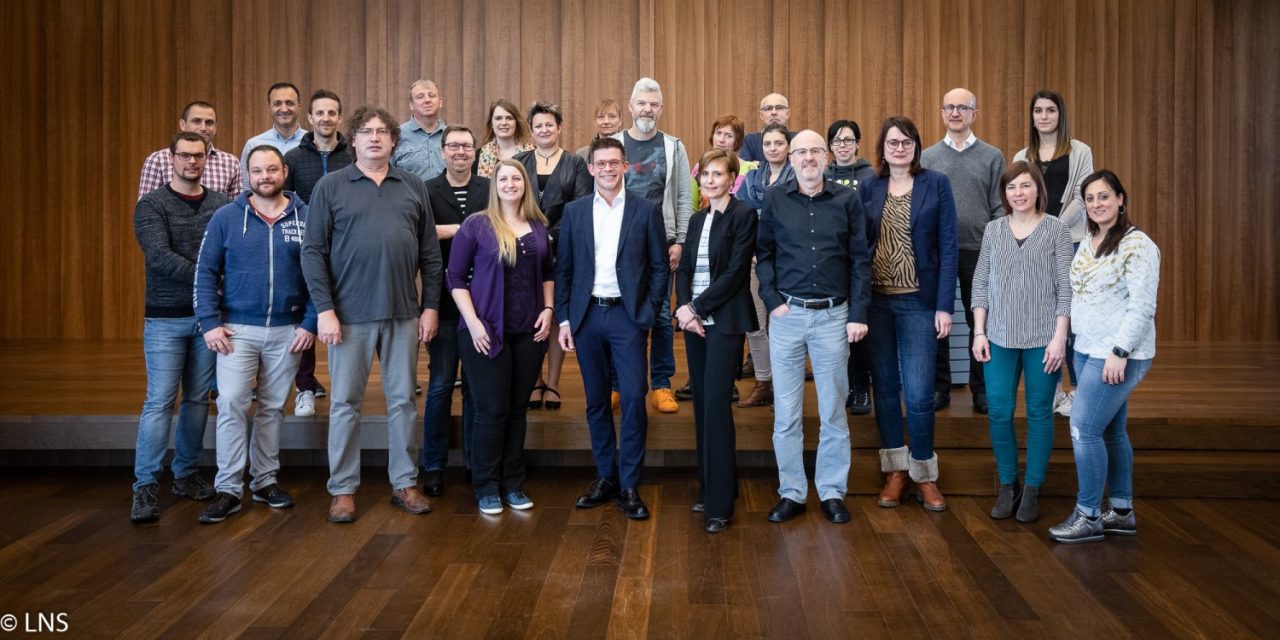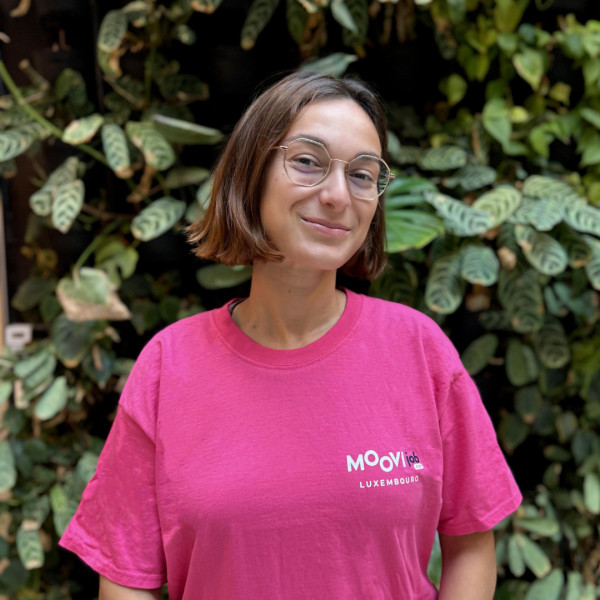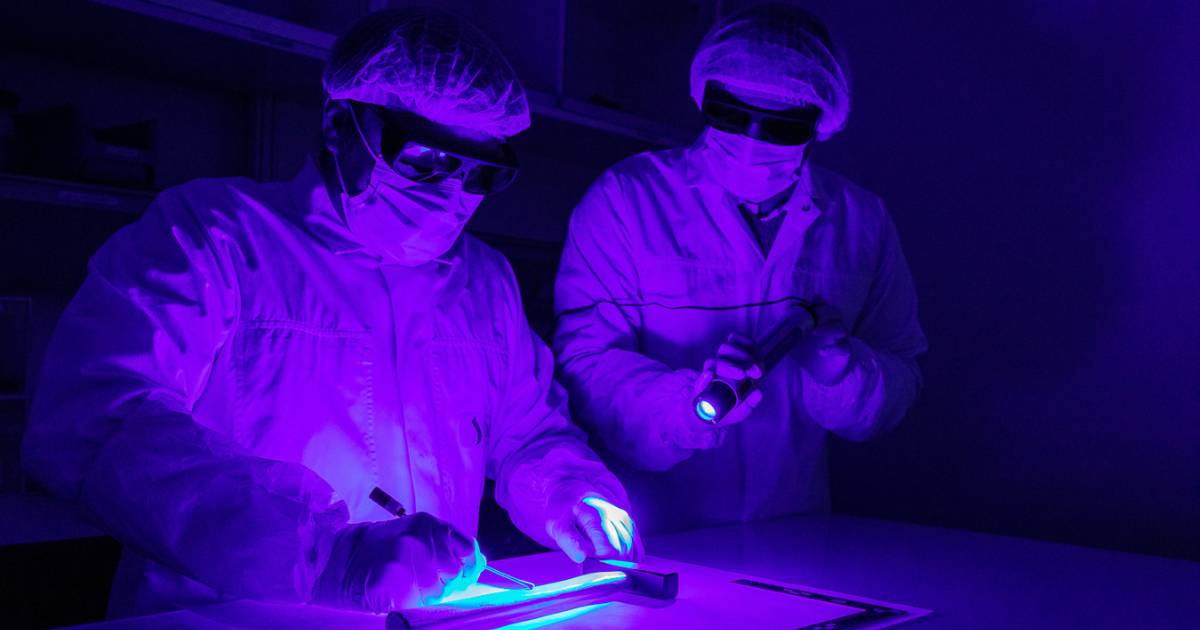After last month's inspiring meeting with Hasna Rahma, a Software Development Engineer, we invite you to put yourself in the shoes of a forensic medical expert at the Laboratoire National de Santé (LNS). Yes, you understood it right, this month we're talking about forensic science, DNA analysis, investigations, and trials.
You may not know this, but the field of forensic medicine is very developed in Luxembourg. So between what we see in CSI TV shows (Crime Scene Investigation) and reality, how can we manage to see the truth in fiction? That is what we're going to discover together in this article thanks to our profile of the month, Elizabet Petkovski.
"Our job is not to treat, but in a way, we contribute to people's well-being by reducing anxiety and feelings of insecurity." - Dr. Sc. Elizabet Petkovski, Forensic genetic expert at LNS.
A career starting with a compelling offer
When Elizabet started her post French « Baccalauréat » (high-school diploma) journey, post-graduate education in criminology did not yet exist. Therefore, she followed a rather standard and multidisciplinary path and then specialized. After obtaining a « DEUG » (two-year University degree) in molecular biology, then an engineering degree in biotechnologies and a « DEA » (one-year University degree) specialized in Molecular and Cellular Biology, she chose to pursue a PhD in molecular and cellular aspects of Biology at the Institute of Forensic Medicine in Strasbourg. She then began her career at Codgene Laboratory as an intern before being hired and becoming a certified forensic expert.
A few years later, in 2011, Luxembourg will open its own National Health Laboratory (LNS) under the supervision of the Ministry of Health. For the development of this project, the LNS will call on Elizabet as a consultant. Once the project was completed, the forensic expert was offered a position as head of unit of the forensic genetics service at the LNS. She therefore decided to « migrate 200 km » to the Grand Duchy and has been working there ever since.
A double role within the Laboratory
The Laboratoire National de Santé consists of 7 major interdisciplinary departments, including Medical Biology, Microbiology, or Forensic Medicine. At the forensic genetics service, each colleague has an administrative role in addition to their main job. Thus, Elizabet has the « double role » of forensic genetic expert and Head of unit.
This service is currently composed of 15 collaborators:
- Laboratory technicians who analyze DNA evidence;
- Forensic experts who decide on an analytical strategy to adopt, interpret the results, write expert reports, and appear in court trials;
- Engineers who ensure the proper functioning of the laboratory and the quality of the results;
- A secretarial department that receives the evidence and records it in files.
A role in revealing the truth
Now that you all know about the laboratory and every profile involved, let’s discover the process of an investigation. When is « the DNA lab » called on? What are the roles of each service member in this investigation process? Stay with us as we get to the heart of the matter.
First of all, it should be known that forensic medicine can intervene in cases ranging from attempted burglary to murder and rape.
Investigation scenario: A crime has just been committed, the police go to the scene. They seize traces and/or objects that could be relevant to the investigation and contain traces. All of these are directly transmitted to forensic medicine. First of all, the secretarial service will record evidence, and then have it analyzed by its experts. These latter will put the evidence in the context in which it was seized to determine its relevance to the investigation. The experts will then determine the samples to be taken and transmit them to the technicians who will « technic » (analyze) them. Once the results of the analysis have been validated by quality control, they will be interpreted and recontextualized by the experts before being transmitted to the magistrates. Finally, and on a regular basis, the experts are required to appear in court to explain their results. Thus, forensic medicine is working closely with the police and criminal justice.
To better illustrate this meticulous and rigorous work, you can check this video from the LNS.
"Our role is to help reveal the truth at justice level."
From fiction to reality
Like it or not, CSI shows are now basic TV nights. But then, what would be an expert's opinion on these series that deal with its daily life?
"It is less sexy in reality."
First of all, Elizabet tells us about the great publicity that these shows give to their jobs. Indeed, more and more people want to pursue forensic science since the broadcasting of this type of entertainment. But on the other hand, these series also allow criminals to learn not to leave traces.
Then, our expert wants to set the record straight on some points:
- In shows, it seems that 25 people work on one case, while in reality, it is more like one person working on 25 cases simultaneously.
- In shows, a case lasts 25 minutes, while in reality, it is the result of more than a week of hard work.
- In shows, the protagonists spend night and day on a single case, while in reality, « we are human, we sometimes sleep ».
- In shows, you have to be sexy and shocking to captivate the spectator, but in reality, not all cases are extraordinary.
Despite this, Elizabet enjoys watching some of them and sometimes, others amuse or even shock her. That is why she would like to remind all viewers or profiles wishing to work in forensic science that « the screen protects from reality ». Indeed, one must be prepared to work on an « ugly aspect of humanity ». To do so, it is not enough to be « Madame Irma », but you must follow advanced studies that are not necessarily easy. Finally, when one starts in this field, one must be flexible and available. Indeed, Elizabet tells us about her busy and unpredictable schedule:
"There is no typical day, we know when it starts but not when it ends."
An emotional impact difficult to manage without a cohesive team
As you can see, this is no ordinary industry. You have to be prepared to deal with shocking situations. Elizabet therefore advises to always be ready to help each other within your team, to create an environment in which you feel comfortable, and above all to exorcise at work so you’re not bringing this emotional baggage home. Communication and the absence of taboos are essential. Indeed, within the same team, we live the same situations, we understand each other more easily than a spouse or friend, for example, who are not necessarily prepared to hear everything.
Nevertheless, it is very important to remain objective and impartial. You have to try to be the least emotionally affected and keep in mind that these are « scientific subjects of study ».
"If we don't take a step back, if we take everything to heart, we won't be able to do anything in life. We would be keeping our kids from going out."
A passion turned into a real calling
"I turned my passion into my profession."
During her engineering studies, Elizabet attended a presentation by a professor on forensic science and « in half a second » she knew she would make it her profession.
"I love my job, but there are certainly ups and downs. Some cases are exciting when you can use your knowledge and expertise. Others, on the other hand, will be handled with a little less enthusiasm, but it's part of the job."
Indeed, Elizabet loves her job! #SheLovesHerJob
What she loves most is contributing to the « manifestation of the truth » by righting wrongs. Of course, sometimes it means incriminating people, but it also means clearing them of wrong accusations and « freeing them through DNA ».
Moreover, she feels that her job truly contributes to the society. Although according to her, there are no useless job. It depends on the attention you put in it.
An industry in search of new talent
"The sector attracts for CSI reasons, but are the talents the right ones? We don't know."
Elizabet has been involved in the recruitment of all her co-workers and she is very proud of them: « they are very competent in BOTH hard and soft skills ». She says that her team is composed of « nice talents », but the LNS regularly recruits, especially in the department of forensic medicine.

A final message to share
"Luxembourg is not only a state as one might like to categorize it. Sure, it is a small country, but all professions are represented here. We work with qualified collaborators and are always looking for new profiles, whether in sciences, research, or even production." - Dr. Sc. Elizabet Petkovski.
Do you want to apply for a position in this sector after reading this article? Find all the job offers available at LNS on Moovijob.com.
Would you like to be the next portrait of the month? Contact us for more information.


